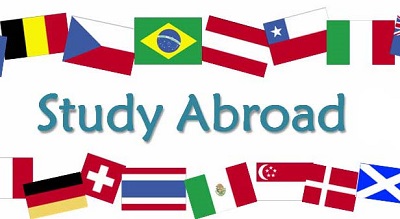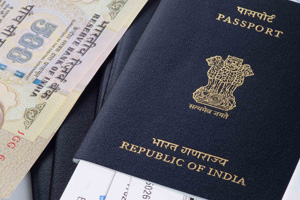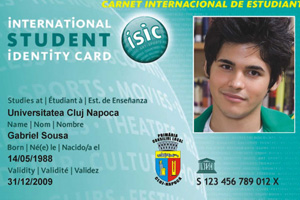Checklist for Study Abroad

Read on to know some vital elements which you need to be aware regarding your study abroad.
By Tejal Mistry 31st May, 2016 | 04:32 pm
ShareAfter the long battle of filling applications, applying to different universities, going to different counsellors for advice and deciding on what course you need to do, the real struggle starts. After getting into the desired programme in their preferred college or university, students usually get confused with how to get started with their new international student life.

Image source: www.aecchandigarh.com
Whether you plan to study abroad for a month, a semester, an entire academic year or a full degree, it is important that you think about things such as travel insurance and medical insurance which will help you abroad.
Read on to know some vital elements which you need to be aware regarding your study abroad.
Student Visa

Image source: www.gqindia.com
After getting accepted for a particular course in a country, it is important that you apply for a study visa in that country’s embassy. Often while applying to any accredited university, the school will assist with the visa process, but this is not always the case in many colleges. So, make sure you ask for help if such a scenario occurs. To do this, you will have to contact the embassy or the consulate of your country. Here you will have to present your whole file of documents—university letter of approval, the passport, funds and sometimes a return ticket to your hometown after the end of the course.
Funds

Image source: www.charteredclub.com
One of the most important elements which need special focus is managing your finances in the foreign country. While considering your finances, make sure you have enough money which is accessible for the duration of your course. When converting your money, make sure you don’t do it at the airport. Get it done in advance from a local bank, travel agent or post office, because at the airport, you may not always get the best conversion rate. Also, have a bank account which you can access abroad with a debit/credit card through local ATMs. Once your financial resource is sorted, make a list of expenses including everything from accommodation to food and travelling. Figure out how much money you need on a monthly basis and plan on how much cash to carry and how much needs to be deposited in the bank.
Scholarships

Image source: www.visaliarcfoundation.org
If your finances stop you from pursuing any particular course, then you may want to consider looking at some scholarship options. First, you may have to look into the kind of scholarships available to find out whether you are eligible to receive additional funding for your studies. Many scholarships are usually subject-specific and require high grades in academics to qualify. If your school doesn’t offer anything, then outside funding is also an option such as education loans or international scholarships.
International Student Identity Card (ISIC)

Image source: www.queensu.ca
The International Student Identity Card (ISIC) is important for every student planning to study abroad. The card offers discounts on products and services such as public transport, travel insurance, international calling cards and several other useful things around the world. The organisation behind ISIC offers help to students related to any problems faced during their stay abroad.
Insurance

Image source: www.affairscloud.com
Travel insurance is necessary as it will cover your major expense—medical. Be it illness, injury or theft, this insurance makes sure that you don’t spend your entire life savings on a trip to the doctors. In many countries, having health insurance is mandatory for international students. You may also be asked to prove that you have sufficient funds to manage your health abroad.
Medical Check-up

Image source: www.sportzetc.com
Early to bed and early to rise makes a man healthy, wealthy and wise. This is applicable to all walks of life. If you’re not fit, then fighting any kind of battle will be very difficult. Considering the difficulties one faces while staying abroad, it is better you keep yourself in good shape to conquer any battle. So, before you leave, make sure you have a full body check-up and if necessary have all the vaccinations you may need for your chosen country.
Travel Guide

Image source: www.gottakeepmovin.com
The first thing every student should do is get around and explore the new country and its culture. Try gaining all kinds of knowledge related to the country. In this case, the Internet is a great resource to clear all your doubts. You may also discover that buying a railcard will come in handy for transport by train as well as many other beneficiary itinerary guides. If you have chosen a country where English is not the primary language, then prepare yourself in advance and get acquainted with the language of the locals.
Finally, take a deep breath and don’t worry. Everything will be fine. You just have to be a little more alert and adaptive. Try to understand the challenges coming your way and do your best.
Also Read: All you need to know about SAT (Part 1) & Application and Admission Process SAT's (Part 2)
More from Education
Important Resources
- Education Franchisee opportunity
- NCERT Solution
- CBSE Class 9 Mathematics
- NCERT Solutions for class 10 Science
- Sample Papers
- CBSE Class 9 Science
- NCERT Solutions for class 10 Maths
- Revision Notes
- CBSE Class 10 Hindi
- CBSE Class 10 English
- CBSE Class 10 English
- CBSE Class 10 Social Studies
- CBSE Class 10 Science
- CBSE Class 10 Mathematics
- Career In Science After 10
- Career In Commerce After 10
- Career In Humanities/Arts After 10
- NCERT Solutions for Class 10
- NCERT Solutions for Class 11
- Business Studies Class 12 CBSE project





